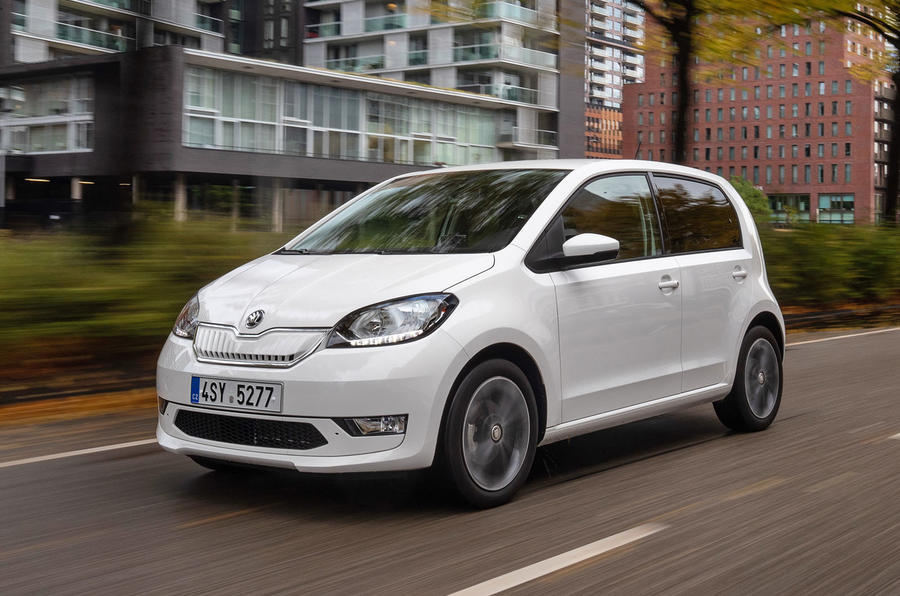A next-generation version of the Skoda Citigo would be electric only - but the model remains unconfirmed for production as the threat to the future of affordable non-electrified city cars continues.
Such cars are now an endangered species in Europe as the industry is widely unable to make them meet the strict EU average CO2 target of 95g/km in their current form and cost. While city cars can be made electric – and indeed many are, including the Citigo in its current generation – doing so roughly doubles the list price.
Skoda announced plans at its annual press conference in March last year to launch 30 models before 2023, at least 10 of which would be electric or electrified, but an all-new Citigo is not among them.
Skoda technical boss Christian Strube said that he believed a future Citigo would be solely electric, and that the rise of mega-cities meant that small cars still “made sense”. Strube conceded, though, that the car “must be affordable, otherwise it doesn’t make sense”.
On the subject of the affordability of small electric cars, Skoda boss Bernhard Maier said that government subsidies were needed to help bring the cost down. “The first EVs are more expensive as the material costs are much higher than internal combustion engined cars,” he said. “Without suitable government intervention, they will be hardly accessible as a mass product for people seeking a small family car.”
The revised Citigo is Skoda’s first electric car, and the firm will launch a dedicated electric family hatchback based on the Volkswagen Group's MEB platform by the end of 2020. Along with the new Superb plug-in hybrid, and an Octavia PHEV to follow this year, Maier said that Skoda was well placed to meet its CO2 fleet target by the end of the year and avoid paying fines.
The models are among the 30 due by 2023, and Maier said that once they were all launched the brand “would not stop” and would continue its expansion as part of plans to increase sales from 1.24 million to two million by 2030.
READ MORE
Autocar's plan to save the city car
Skoda Citigo-e iV 2019 review
Skoda to launch 30 new cars by 2023









Join the debate
Add your comment
I was quite impressed
I was quite impressed recently when I read that a Skoda spokesperson was saying how important city/small cars were for attracting people to the brand. Traditionally, manufacturers were prepared to make, little, if any profit on their small cars, with a longer term view of making more money by keeping customers with the brand as their needs changed and they bought more profitable models. That has all changed: Manufacturers know, with the high costs of electrification, and approaching automation that they are on borrowed time, so they're not willing to make these shorter term losses. And in this particular case, I'm sure the original Skoda spokesperson got the hard word from VW management.